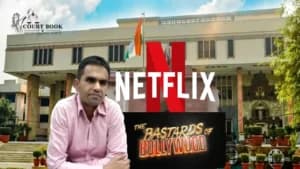Congress leader Rahul Gandhi has told the special MP/MLA Court in Pune that Vinayak Savarkar had a family connection with Nathuram Godse, Mahatma Gandhi’s assassin, and this fact was hidden by the complainant, Satyaki Savarkar, in a defamation case against him.
Read also: Supreme Court Urges P&H Bar Council To Ensure Transparent Bar Elections In Haryana
In a plea filed through his lawyer Milind Pawar, Gandhi stated that Satyaki is the son of Ashok Savarkar, who was Vinayak Savarkar’s nephew. This fact was recorded by the complainant. However, Satyaki did not inform the court that his mother, Himani, is the daughter of Gopal Godse, Nathuram Godse’s brother. Both Gopal and Nathuram Godse were convicted for Mahatma Gandhi’s murder.
The application alleges that Satyaki submitted only the paternal side of his family tree but failed to reveal the maternal side, which shows he is Gopal Godse’s grandson.
Read also: Supreme Court Collegium Recommends Transfer of 21 High Court Judges in Major Reshuffle
“As per information, his (Satyaki’s) mother Himani is originally and by birth from the Godse family. Despite this, the complainant deliberately, systematically and very brilliantly avoided and suppressed the family tree from his maternal side. This suppression of material facts is a serious issue and can be considered fraud on the court,” the plea claims.
Gandhi also alleged that Satyaki did not reveal that Savarkar was initially a co-accused in the Gandhi murder case but was acquitted due to lack of evidence.
Referring to historical records, Gandhi’s plea mentions that Savarkar and Godse supported the idea of a "Hindu Nation" and saw Muslims and Christians as "misfits" in India. It is argued that Savarkar’s views contributed to the thinking behind the assassination of Mahatma Gandhi, as he was seen as “lenient” towards Muslims during Partition.
Read also: Supreme Court: No Reduction of 20-Year Sentence for Aggravated Sexual Assault Under POCSO Act
The application further mentions that Savarkar’s 1937 and 1943 statements promoted the "two-nation theory," suggesting Hindus and Muslims were separate nations, a concept later endorsed by Muslim League leader Mohammad Ali Jinnah.
“Savarkar’s views articulated in 1937 and further solidified in 1943 emphasised the separation of the two communities and their distinct identities, a perspective that laid the groundwork for the eventual partition of India,” the plea says.
Gandhi’s plea also cites historians’ views that Savarkar’s writings in jail were anti-Muslim.
“Savarkar promoted anti-Muslim Hindu nationalism and saw Muslims in the military and police as potential traitors. He suggested reducing their numbers in these services and banning them from working in munition factories,” the plea adds.
The plea references Savarkar’s 1963 book, Six Glorious Epochs of Indian History, where he allegedly said that Muslims and Christians aimed to destroy Hinduism and that rape could be used as a political weapon. The book also describes how Tipu Sultan distributed Hindu women among his soldiers.
Essentially, Gandhi’s application challenges Satyaki’s claim that Gandhi’s remarks in London defamed Savarkar. The special judge, Amol Shinde, has directed Satyaki to respond to Gandhi’s plea.















